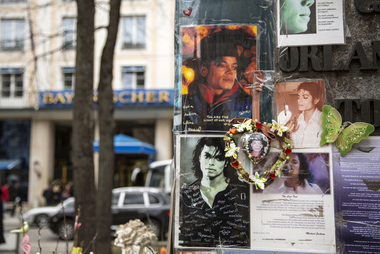Posted in Triplett & Carothers on October 29, 2025
After Michael Jackson’s death in 2009, his roughly $500 million estate became the subject of years of legal wrangling. While Jackson had created a revocable living trust, designed to convert after his death to benefit his children (at ages 21, 35 and 40) and his mother, he failed to transfer most of his assets into it. That mistake meant the trust couldn’t be used as intended and nearly the entire estate had to go through probate — a slow, expensive court process meant for people who die without proper planning.
Jackson had also signed a pour-over will, which would have transferred to the trust any assets not already in it when he died. But pour-over wills still need to go through probate. Jackson had named his longtime attorney, John Branca, and music executive John McClain as executors. Members of Jackson’s family challenged that choice, and the result was years of public courtroom battles.
The estate’s size also attracted attention from the IRS. After auditing the estate’s tax return, the IRS claimed that Jackson had undervalued his assets and owed nearly $700 million in back taxes and penalties. That froze the estate and prevented the trust from being funded. The estate eventually won in tax court in 2021, but it also challenged the court’s valuation of Jackson’s music catalog, which was partly owned by Sony.
Jackson’s trust included a charitable provision: Twenty percent of the estate’s value had to go to charity before the rest could be distributed to his heirs. But with asset values disputed and legal challenges unsettled, the executors could not calculate or fulfill that charitable gift. Eventually, the estate negotiated the potential sale of Jackson’s music catalog to Sony for $1.2 billion to $1.5 billion — a reminder that his legacy remains financially significant even now.
A trust only works if you fund it
Jackson’s plan made sense on paper. He wanted to keep his affairs private and out of court, and he understood the need to delay large inheritances until his children were older. But because the trust was empty when he died, those instructions couldn’t be followed. The his children and mother rely on annual allowances administered by the executors and overseen by the probate court’s review of the executors’ reports.
This is a cautionary tale for anyone creating a trust: A trust is not a bank account; it won’t hold anything unless you place your assets into it. Real estate, business holdings, investments and other property must be titled in the name of the trust. That process is known as funding the trust, and if you don’t do it, the trust can’t protect your assets.
A pour-over will can help catch anything left out, but it’s no substitute for proper planning. If your major assets aren’t in the trust, those assets will go through probate — just like Jackson’s did. And that can lead to delays, conflict and exactly the public scrutiny you may have hoped to avoid.


